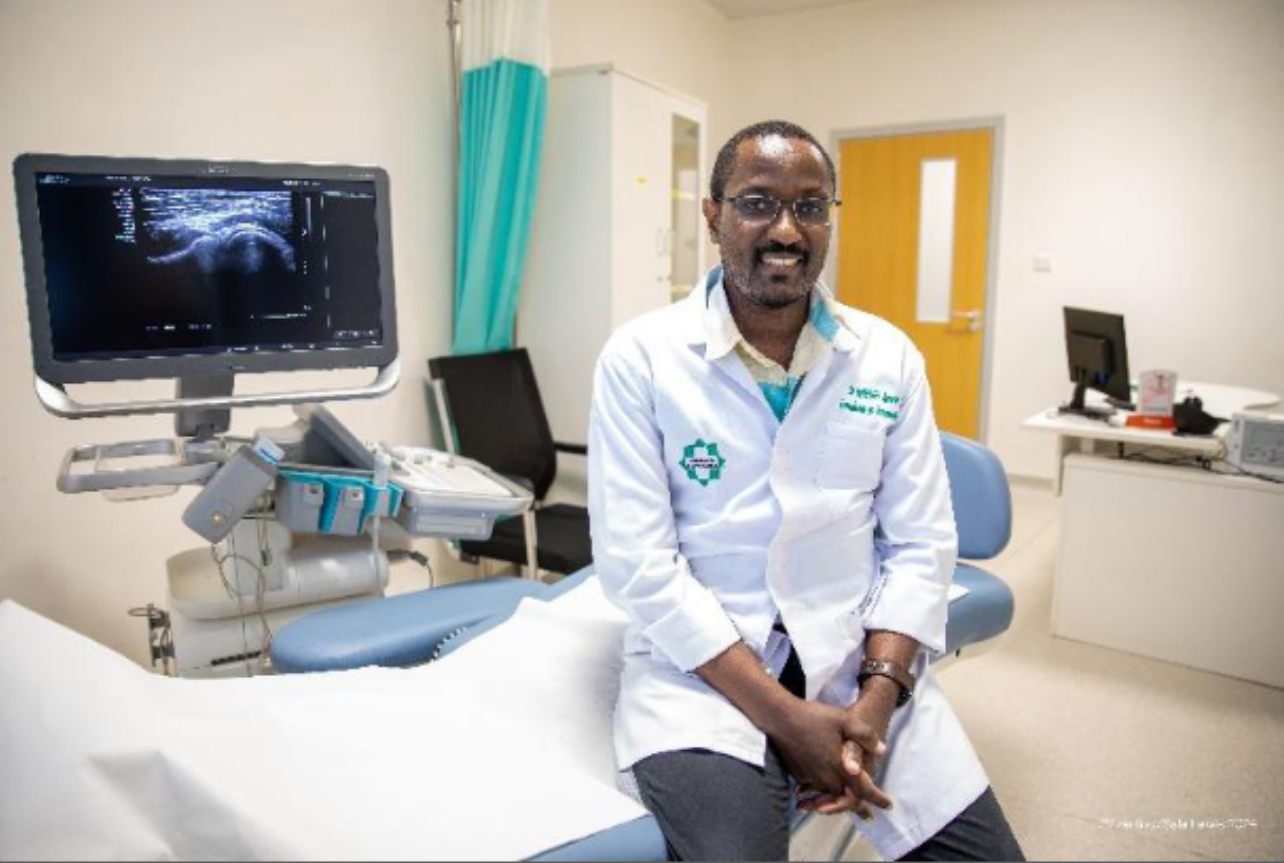At King Faisal Hospital in Kigali, a quiet revolution is taking place—one that brings relief to lives long marked by pain, misunderstanding, and silence.
For years, people suffering from rheumatological diseases in Rwanda were trapped in a cycle of misdiagnosis, lack of access, and costly treatment—often navigating the system without ever finding the help they needed.
But that is beginning to change.
Dr. Janvier Murayire, Rwanda’s first and only rheumatologist, is not only bringing specialized care to patients who had nowhere else to turn—he’s also leading a national shift in how the country views and treats chronic joint and autoimmune conditions such as rheumatoid arthritis (RA).
“Rheumatological disease, even though most of them are not fatal, they really make people suffer,” Dr. Murayire says. “And once you relieve the pain and you see the pleasure in their eyes, you feel happy.”
For many patients, his clinic at King Faisal is the first time they’ve felt heard.
Before Dr. Murayire’s arrival, general internal medicine doctors—while dedicated—lacked the specific expertise to diagnose and manage these complex conditions.
Patients like Janvier N. spent months, even years, going from doctor to doctor, searching for answers.
“I met about 16 doctors last year. More than 16,” Janvier says. “Most of this isn’t covered by insurance. You have to pay everything yourself—100 percent. If you can’t afford it, you don’t get treatment. You just suffer.”
The burden is not only financial, but emotional and social. “Rheumatological disease pulls you out of society,” Dr. Murayire explains. “But once you get treatment, you’re able to return to your community, to your life.”
That’s exactly what Yvonne K., another RA patient, has been advocating for.
While working at a teaching hospital, she saw how many people were “lost”—undiagnosed, untreated, and misunderstood. “Even the other doctors didn’t refer them to specialists—sometimes because there weren’t any.”
The stories of Janvier, Yvonne, and many others have now been documented through powerful interviews, photos, and video footage produced by Pfizer and Pacifique Mugemana.
These materials show the human face of rheumatological diseases in Rwanda: from James K. walking with quiet determination across the drop-off zone at King Faisal Hospital, to Dr. Murayire calmly putting on his coat and entering his clinic.
Each image, each voice, tells a story of resilience and the impact of access to care.
It’s important to acknowledge the role of Pfizer’s Accord for a Healthier World, in collaborating with Dr Murayire to achieve this incredible feat.
They provided critical support and resources, including medical education.
The Accord collaborates with global health leaders, like Dr. Murayire, to provide health workforce education and development in lower-income countries.
Dr. Murayire’s dream is clear: “I hope we’ll have enough rheumatologists—maybe even one in each district hospital.” It’s an ambitious goal in a country that had no specialist in this field until recently, but one that’s already making a difference.
Notably, Rheumatological diseases don’t just cause pain; they isolate.
They disrupt work, education, family life, and mental health. Without treatment, patients often withdraw from society, unable to move freely, care for their families, or contribute to their communities.
But thanks to efforts at King Faisal and growing awareness, things are shifting. Patients are now being seen.
Their conditions are being diagnosed. And for the first time, there’s hope that care will become more accessible—regardless of income or geography.
As Rwanda continues to build a health system that leaves no one behind, the story of rheumatology is becoming part of a larger national narrative—one that says: every life in pain deserves relief, every patient deserves a diagnosis, and every story deserves to be told.
And at the center of it all, in a small clinic inside one of the country’s most advanced hospitals, that story is unfolding—one appointment, one patient, one voice at a time.